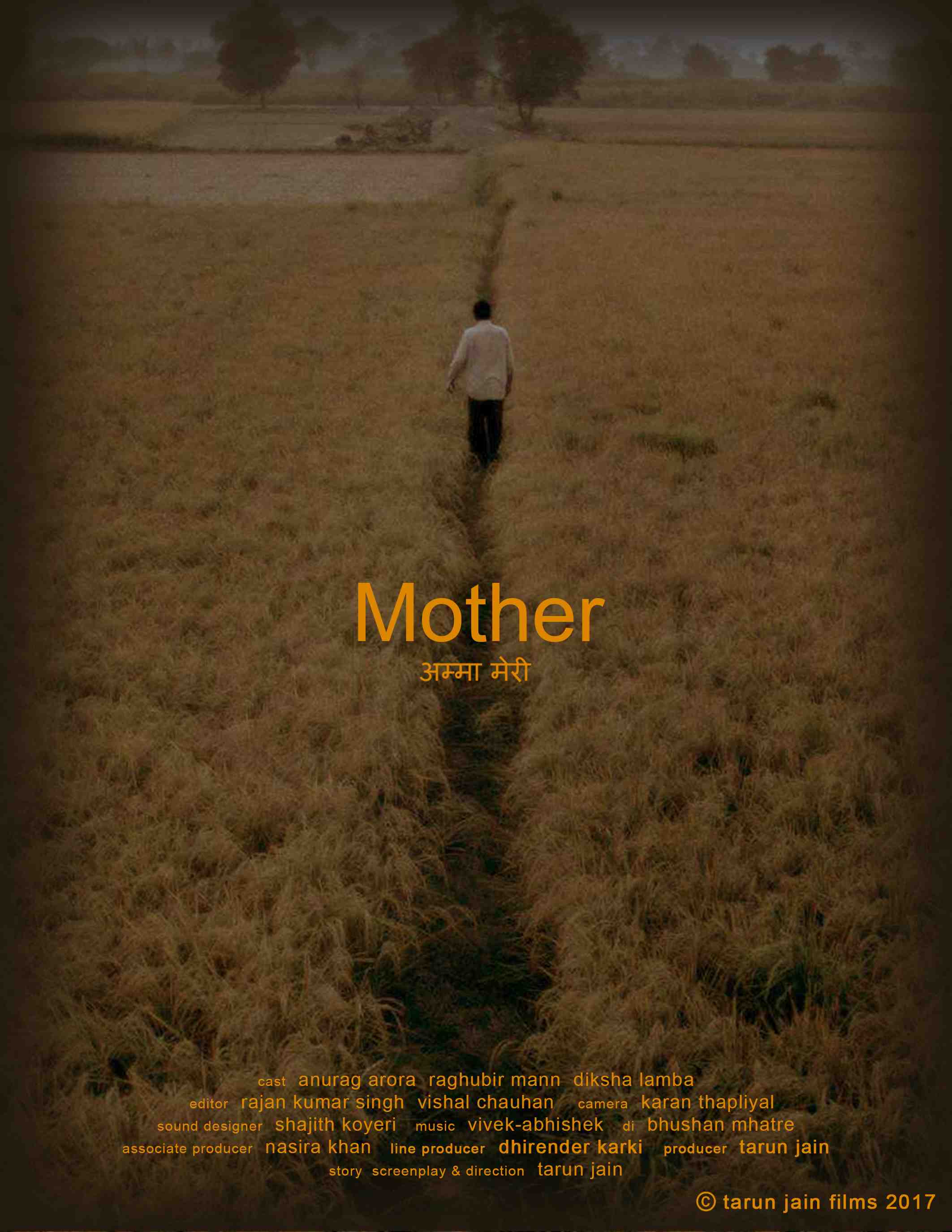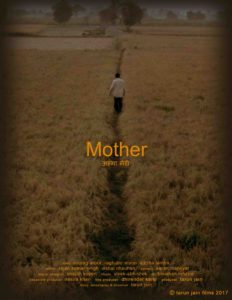
India/South Asian Independent Short Film Review “Amma Meri (Mother)”
WATCH THE TRAILER HERE
First, the Recap:
Acts of compulsion and the pressures of obligation. For any of us, these forces can be a weight upon our conscious and decision-making while under their influence is made all the more difficult. It comes down to whether said actions we take will ultimately benefit ourselves, or end up leading us to a road of regret and a betrayal of what we hold most dear. With the passing of his beloved father, a man named Balram (Anurag Arora) faces such a storm of emotions and conflicted mindset as he soon realizes the entire burden of caring for his elderly mother (Devki Rani) and all the associated expenses he has on the horizon now solely rest upon him.
Hearing multiple, and often unsolicited, opinions from everyone including a local banker (Shivam Pradhan), his brother Raghubir (Raghuvir Mann), and even a stable owner (Shakeel Qureshi) as to how to handle the finances associated with his father’s passing and how he should become the sole nominee to accept them, Balram is further strained in his search for a suitable groom for his daughter Rashmi (Diksha Lamba) while attempting to keep a budding dairy business afloat. As the tensions mount, Balram begins to entertain thoughts that run amok within his mind, threatening to undermine who he is as a person, even as moments he shares with his Amma become more and more treasured but also convicting to his soul and what measures he’s considered taking to alleviate the stress.
Next, my Mind:
There’s an underlying sense of ominousness that permeates this deeply human dramatic short film effort from writer/director/producer Tarun Jain that plumbs the depth of one man’s personal morality, spirit, heart, and very being when faced with the difficult choice of obtaining a potentially life-altering payday vs. having to humbly succumb to the overt love he has for his mother and somehow easing the quiet suffering she now endures while shouldering the familial and professional commitments and necessities he bears. Delivering this powerful and sometimes darker narrative with a bare overall minimum of actual dialogue, the film strives to visually present its lead character’s plight with deft cinematography and very telling body language and facial expressions from the actors, only utilizing spoken words mainly when Balram interacts directly with several of the aforementioned individuals in the above synopsis. It’s a highly effective technique when done well, and suffice it to say, that is very much the case here, with a tangible sense of what one might even call dread at times when certain possible resolutions to Balram’s tense situation arise, leaving the viewer with those moments of feeling like “NO! He wouldn’t even THINK that…would he??”. It’s an exercise in revealing the patterns of thought that run through a person’s mind in times of desperation, which whether you wish to admit it or not, is something we’ve all faced on some point in time, even to that extent of extreme measures, in whatever form those might take. Yet, in the midst of such internal chaos, it’s the unexpected times of calm and affecting encounters with others that can so decisively change our perspective, and it is exactly this kind of scenario that plays out as we near the film’s touching, stirring finale that puts a definitively heartwarming, and heartbreaking, exclamation point on events depicted.
It’s a beautifully nuanced and intensely subdued performance provided from Arora as Balram, a simple man trying to eke out a living via a dairy delivery business to provide for his family, who finds himself in a state of total agitation upon trying to determine the best course of action to pursue in the wake of his father’s passing while feeling the weight of all associated responsibility crashing down on him. With potential influencers around him giving advice about the financial aspects of his father’s final rituals while trying to be present for his fragile mother who isn’t able to offer much help, Balram finds himself at odd with his wife and daughter to boot, the latter of whom he is wanting to marry off. As the apprehensions build, Balram begins considering rash actions, and it is only thanks to a brief but serious incident that brings him back to a better state of reality, and a much renewed appreciation for the one who brought him into the world. It’s such an ever-fluctuating mix of subtle yet jarring uncertainty in wondering what Balram will do and deeply meaningful thematic exploration of the undeniable potency of a mother’s impact on his life, with Arora navigating these shifting, volatile ebbs and flows with acute urgency and a realistic flare.
Rani, without saying a single word in this film, speaks volumes with her portrayal of Amma, Balram’s mother, whose entire sense of existence has been shaken to the core with the death of her husband. As she simply strives to live day by day in this state of evident but likewise deceivingly calm loss, it is also clear she’s feeling a plethora of emotions and experiencing so many thoughts about her son and the burden he is now carrying, even though she’s unable to directly assist him with most of it until accompanying him to get certain paperwork completed involved with the finances in question. Once they return from this, the moment they share is so overtly moving, that it re-emphasizes and really summarizes the relationship the two have shared for so long, transcending the circumstances, but then serving as a powerful lesson about the choices we make while under duress. In it all, Rani again says so much without audibly saying anything, a huge credit to the actress. Supporting turns arrive via Lamba as Balram’s frustrated daughter Rashmi, who only wants to move on with her life and perhaps get out from under what she might see as a stifling home life, Naresh Kaushik as Balram’s longsuffering wife, whom we can tell has had her fill of his struggles and attitudes, despite the circumstances behind much of it, Mann as Balram’s brother Raghubir who’s trying to assist in finding Rashmi a husband, Qureshi as a stable owner more than encouraging Balram to be all about being the sole beneficiary of the fixed deposit funds, and the late Shivam Pradhan as an unscrupulous banker trying to almost coerce Balram into moving forward. Additional turns are present from Abhishek Yadav, Gulzar, and Nikki.
In total, “Amma Meri (Mother)” is a solid example of Indian/South Asian independent filmmaking in that it demonstrates all the qualities this reviewer appreciates about the genre overall, with its character-driven execution, multi-faceted thematic explorations, and raw tone that helps remind us all about just how human we are and what’s truly important in this life, not to take it for granted, and never waiting until it’s gone to appreciate it.
As always, this is all for your consideration and comment. Until next time, thank you for reading!





its the best film since Court. It reminded me of Ray and his Indira Thakruan in Pather Panchali.Yes thats how good this is.
Pity ppl cant watch it online
I am touched by your affection. You’ll be happy to know that the film will be released online soon.
I am touched by your affection. You’ll be happy to know that the film will be released online soon.